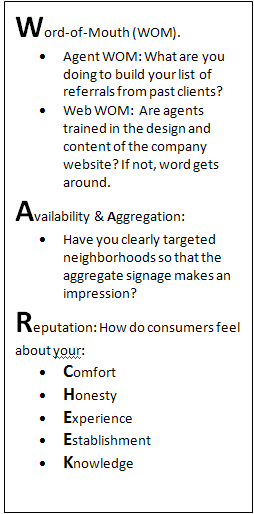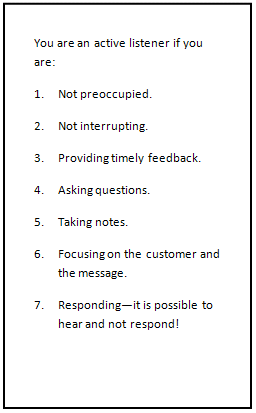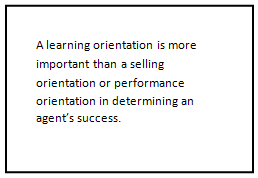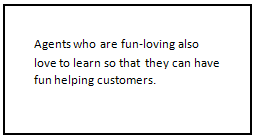What Do Consumers Expect from Real Estate Agents
by Kirk Wakefield, PhD, Chris Pullig, PhD, Laura Indergard, MBA, Suzanne Blake, MBA Candidate, Bryan Gregory, MBA Candidate, Chris Matcek, MBA/ME Candidate, Tara Gitau, BBA
How do home buyers or sellers decide on an individual agent? We conducted a focus group among recent home buyers and sellers asking just that question. Would being with one of the five best known national brands matter? What source of information dominates the decision? How does the brand's website factor into the decision? In reviewing the videotape of the focus group and evaluating the recurrence and concurrence of responses, we found that their answers reinforce three basic factors that influence the selection of an agent. Our research subjects didn't realize it, but their responses mysteriously formulated into two memorable related acronyms. We'll spell it out for you.
Social Influence
Word-of-mouth. We asked, "How do you go about making a decision on an individual agent for buying or selling a home?" Among the group's first responses were that they listened to word-of-mouth (WOM) from friends who are realtors and from friends who had a good experience with a specific realtor. This indicates that individuals  seek out others who have some level of experience in buying or selling real estate and with whom they already have a relationship. Unless you are the friend they have asked, this points to the critical nature of referrals. Your past clients are talking with people today who are asking them about their experience in buying or selling -- because everyone knows if a friend has just moved residences. Interestingly, the focus group noted that word-of-mouth spreads regarding the ease of use of the realtor's website. Since people know that company websites exist, the issue is more about whether or not it meets their needs. A recent study found that the "virtual servicescape" of the realtor's website is a surrogate indicator of quality and can reduce uncertainty when considering whether or not to engage an agent. It gives buyers or sellers a clue about the "potential quality" they might find if they contact the agency. Of particular importance is whether or not agents are well trained regarding the content on the website and its capabilities. Other studies confirm that customers satisfied with the website will as a consequence be more loyal and spread positive messages to others. So, it benefits the agent to inform and educate consumers about the company's website.
seek out others who have some level of experience in buying or selling real estate and with whom they already have a relationship. Unless you are the friend they have asked, this points to the critical nature of referrals. Your past clients are talking with people today who are asking them about their experience in buying or selling -- because everyone knows if a friend has just moved residences. Interestingly, the focus group noted that word-of-mouth spreads regarding the ease of use of the realtor's website. Since people know that company websites exist, the issue is more about whether or not it meets their needs. A recent study found that the "virtual servicescape" of the realtor's website is a surrogate indicator of quality and can reduce uncertainty when considering whether or not to engage an agent. It gives buyers or sellers a clue about the "potential quality" they might find if they contact the agency. Of particular importance is whether or not agents are well trained regarding the content on the website and its capabilities. Other studies confirm that customers satisfied with the website will as a consequence be more loyal and spread positive messages to others. So, it benefits the agent to inform and educate consumers about the company's website.
Market Influence
When asked why she picked a particular realtor, one respondent said, "Because I see them the most in the neighborhoods I like the most." This sentiment prevailed in the focus group, suggesting that the availability and the aggregation of the realtor in the market determines agent choice. Availability and Aggregation. The implication is that focusing on targeted neighborhoods will lead individuals shopping those neighborhoods to associate sold and available houses with that realtor. Consumers may be aware of the realtor's name and have visited the website, but unless they see that the agency is active in the neighborhoods they find desirable, the agency won't be getting a call. The agent must be perceived as easily available or convenient for the buyer or seller to do business. Studies also suggest that when new agencies are added in the market area, the additional signage and increased advertising allotment can lead to greater attractiveness or demand for the brand. So, it might seem bothersome when another agency from the same realty company opens close to yours, but it may help overall as customers begin to associate your realty brand with that area.
Reputation
Reputation. What do buyers and sellers evaluate when they visit the website? Reputation repeatedly surfaced in the focus group. What a consumer expects from an  agent defines the kind of reputation desired. What do home buyers and sellers expect? We were able to categorize responses along these five dimensions, thus revealing the second acronym: a. Comfort: Will I feel comfortable working with the agent over a long period of time? b. Honesty: Will the agent respect my wishes? Will the agent give straightforward answers? Will the agent be honest about workload and priorities? c. Establishment: Is the agent established? What is the longevity of the agency brand? Do I trust the agency? d. Experience: Does the agent have the breadth and depth of experience to understand and adapt to my situation? e. Knowledge: If I am buying, does the agent know schools, crime rates, taxes, and have other insider knowledge I need? If I am selling, does the agent know marketing, staging, presentation, and technology in a way to effectively justify the commission? Effective realtors must go to WAR, but be ready to turn the other CHEEK, so to speak. Let's examine each of these five dimensions of reputation in turn.
agent defines the kind of reputation desired. What do home buyers and sellers expect? We were able to categorize responses along these five dimensions, thus revealing the second acronym: a. Comfort: Will I feel comfortable working with the agent over a long period of time? b. Honesty: Will the agent respect my wishes? Will the agent give straightforward answers? Will the agent be honest about workload and priorities? c. Establishment: Is the agent established? What is the longevity of the agency brand? Do I trust the agency? d. Experience: Does the agent have the breadth and depth of experience to understand and adapt to my situation? e. Knowledge: If I am buying, does the agent know schools, crime rates, taxes, and have other insider knowledge I need? If I am selling, does the agent know marketing, staging, presentation, and technology in a way to effectively justify the commission? Effective realtors must go to WAR, but be ready to turn the other CHEEK, so to speak. Let's examine each of these five dimensions of reputation in turn.  Comfort. Recent research suggests that the strongest effect on consumer perceptions of satisfaction and loyalty with an agent is the assurance or comfort level the consumer experiences in working with the agent. Our focus group discussed that when considering engaging an agent, they evaluate whether or not they will feel comfortable working with that individual over the course of the relationship. Obviously, your reputation as being someone easy to work with is based on information received from others (WOM). Interestingly, an agent with a good sense of humor is more likely to have a positive reputation as someone customers want to work with. One test of whether or not you have a good sense of humor is whether customers laugh after you arrive or after you leave. Honesty. Honesty is the best policy, but with respect to full disclosure in realty contexts, it's also the law. More central to the point made by our focus group, however, consumers examine the reputation of the agent's honesty in terms of active listening and respect. Customers expect the agent to be honest about the market and count on the agent to have knowledge about when the house will best sell. Evidence suggests that those who with high emotional intelligence are also emotionally honest -- and these traits are more likely to experience superior performance. According to the focus group, agents with a reputation for being honest are known to ask questions, listen intently, and ultimately respect the client's wishes -- particularly regarding price ranges. Good listeners do not manipulate and manipulators are not good listeners. The focus group indicated that agents who respected them, listened to them. In contrast, those who felt manipulated by a realtor offered negative WOM to others, thereby damaging the agent's reputation. Establishment. Many in the focus group were concerned with whether or not the agent and agency were well-established. Essentially, this is an issue of trust -- and customers use length of time in the business as a surrogate indicator. On an individual agent basis, being established means that the agent has been able to satisfy the needs of others long enough to remain in business. So, clearly, newcomers are at a disadvantage.
Comfort. Recent research suggests that the strongest effect on consumer perceptions of satisfaction and loyalty with an agent is the assurance or comfort level the consumer experiences in working with the agent. Our focus group discussed that when considering engaging an agent, they evaluate whether or not they will feel comfortable working with that individual over the course of the relationship. Obviously, your reputation as being someone easy to work with is based on information received from others (WOM). Interestingly, an agent with a good sense of humor is more likely to have a positive reputation as someone customers want to work with. One test of whether or not you have a good sense of humor is whether customers laugh after you arrive or after you leave. Honesty. Honesty is the best policy, but with respect to full disclosure in realty contexts, it's also the law. More central to the point made by our focus group, however, consumers examine the reputation of the agent's honesty in terms of active listening and respect. Customers expect the agent to be honest about the market and count on the agent to have knowledge about when the house will best sell. Evidence suggests that those who with high emotional intelligence are also emotionally honest -- and these traits are more likely to experience superior performance. According to the focus group, agents with a reputation for being honest are known to ask questions, listen intently, and ultimately respect the client's wishes -- particularly regarding price ranges. Good listeners do not manipulate and manipulators are not good listeners. The focus group indicated that agents who respected them, listened to them. In contrast, those who felt manipulated by a realtor offered negative WOM to others, thereby damaging the agent's reputation. Establishment. Many in the focus group were concerned with whether or not the agent and agency were well-established. Essentially, this is an issue of trust -- and customers use length of time in the business as a surrogate indicator. On an individual agent basis, being established means that the agent has been able to satisfy the needs of others long enough to remain in business. So, clearly, newcomers are at a disadvantage.  On an agency brand level, focus group members indicated that certain national brands (Century 21 and Prudential) signal longevity and stability. Others, such as Coldwell Banker and Keller-Williams, seemed "more local." When polled, none of our group rated "national brand" as being very important in selecting an agent when buying. When selling, the importance of being a national brand was somewhat more important. But, again, none rated it as very important. Rather, as long as the brand is recognizable, they were more likely to rely on "whose signs you see the most" in the area. Experience. Closely related to establishment, the focus group noted that the reputation of an agent is tied to the breadth and depth of experience of the agent. No real mystery here. Just like most employers seek employees who have some level of experience, buyers and sellers look for someone who is not going to be training on them.
On an agency brand level, focus group members indicated that certain national brands (Century 21 and Prudential) signal longevity and stability. Others, such as Coldwell Banker and Keller-Williams, seemed "more local." When polled, none of our group rated "national brand" as being very important in selecting an agent when buying. When selling, the importance of being a national brand was somewhat more important. But, again, none rated it as very important. Rather, as long as the brand is recognizable, they were more likely to rely on "whose signs you see the most" in the area. Experience. Closely related to establishment, the focus group noted that the reputation of an agent is tied to the breadth and depth of experience of the agent. No real mystery here. Just like most employers seek employees who have some level of experience, buyers and sellers look for someone who is not going to be training on them.  Knowledge. The focus group discussed the need to find agents with a reputation for knowing the particulars of the local market for buyers and how to market for sellers. We need to differentiate between gaining factual vs. process knowledge. The buyer requires effort by the agent to gain factual knowledge regarding schools and other geo-demographic statistics. The seller requires the agent to learn process knowledge of how to market a property. Knowledge has long been recognized as an important determinant of successful salespeople. But, why does knowledge lead to success? Research of 190 real estate agents across six large agencies found that agents who have a strong learning orientation are more customer focused and more satisfied with their work. We can also conclude that they are more productive, as other research confirms that salespeople with a learning orientation -- as opposed to a selling orientation or performance orientation -- are more likely to succeed. Interestingly, research also suggests that salespeople who are more fun-loving are more likely to have a learning orientation and effective adaptive selling skills. What can we conclude? Buyers and sellers begin the process by paying attention to social sources offered by word-of-mouth referrals from friends and family. Jointly, market sources are observed in the form of the availability and aggregation of the agency's brand in the buyer's or seller's desired neighborhoods. Gathering this information from social and market sources, buyers seek to assess the reputation of the agent. So, it is a WAR out there. But, ultimately, the bottom line rests on the agent's CHEEK -- comfort, honesty, establishment, experience, and knowledge -- which then becomes the basis of the reputable information passed on through social and market communications.
Knowledge. The focus group discussed the need to find agents with a reputation for knowing the particulars of the local market for buyers and how to market for sellers. We need to differentiate between gaining factual vs. process knowledge. The buyer requires effort by the agent to gain factual knowledge regarding schools and other geo-demographic statistics. The seller requires the agent to learn process knowledge of how to market a property. Knowledge has long been recognized as an important determinant of successful salespeople. But, why does knowledge lead to success? Research of 190 real estate agents across six large agencies found that agents who have a strong learning orientation are more customer focused and more satisfied with their work. We can also conclude that they are more productive, as other research confirms that salespeople with a learning orientation -- as opposed to a selling orientation or performance orientation -- are more likely to succeed. Interestingly, research also suggests that salespeople who are more fun-loving are more likely to have a learning orientation and effective adaptive selling skills. What can we conclude? Buyers and sellers begin the process by paying attention to social sources offered by word-of-mouth referrals from friends and family. Jointly, market sources are observed in the form of the availability and aggregation of the agency's brand in the buyer's or seller's desired neighborhoods. Gathering this information from social and market sources, buyers seek to assess the reputation of the agent. So, it is a WAR out there. But, ultimately, the bottom line rests on the agent's CHEEK -- comfort, honesty, establishment, experience, and knowledge -- which then becomes the basis of the reputable information passed on through social and market communications.
. . . . . . . . . . . . . . . . . . .
About the Authors:
Kirk Wakefield, PhD, Professor of Marketing, Baylor University
Director, Keller Center for Research
Dr. Wakefield's current research focuses on (1) valuation of sponsorships, (2) marketing of music & films, and (3) how fans process information and make decisions. His book on Team Sports Marketing and 50+ publications (including Journal of Marketing, Journal of Retailing, Journal of Advertising, Journal of Leisure Sciences, Journal of Advertising Research, Journal of Business Research, and others) involve conducting research in virtually every professional sport (NASCAR, ATP Tennis, anything with a ball or puck) and with teams such as the San Antonio Spurs, Dallas Mavericks, Texas Rangers, Houston Rockets, Houston Texans, and San Francisco 49ers.
Chris Pullig, PhD, Associate Professor of Marketing, Baylor University
Chair, Department of Marketing
Before beginning his academic career, Professor Pullig worked in the retail industry as the CEO of a chain of specialty clothing stores and also as a consultant with the Small Business Administration. He received his PhD from Louisiana State University and was previously on the faculty at the University of Virginia. His research is in consumer attitudes and decision making, with an emphasis on effective creation and protection of consumer-based brand equity. His previous work has been published in the Journal of Marketing, Journal of Academy of Marketing Science, Journal of Retailing, Journal of Consumer Psychology, Journal of Public Policy and Marketing and others.
Laura Indergard, MBA, Baylor University
Associate Director Keller Center for Research and Keller Center for Professional Selling
Editor, Keller Center Research Report
Laura earned an MBA from Baylor University and a BS in Radio-TV-Film production from Texas Christian University. Her background includes work in the advertising industry as a copywriter for IT Network and as an independent small business consultant focusing on marketing and feasibility studies.
Suzanne Blake, MBA Candidate, Dec 2008, Baylor University
Graduate Assistant, Keller Center for Research
Suzanne is a second year graduate student from Tahlequah, OK. She earned her BBA in Entrepreneurial Management from Texas Christian University.
Bryan Gregory, MBA Candidate, Dec 2008, Baylor University
Graduate Assistant, Keller Center for Research
Bryan is a second year graduate student from Phoenix, AZ. His undergraduate degree is in Management Information Systems from Texas A&M University.
Chris Matcek, MBA/ME Candidate, Dec 2008, Baylor University
Graduate Assistant, Keller Center for Research
Chris is a second year graduate student from Katy, Texas. His undergraduate degree is in Electrical and Computer Engineering.
Tara Gitau, BBA, Baylor University